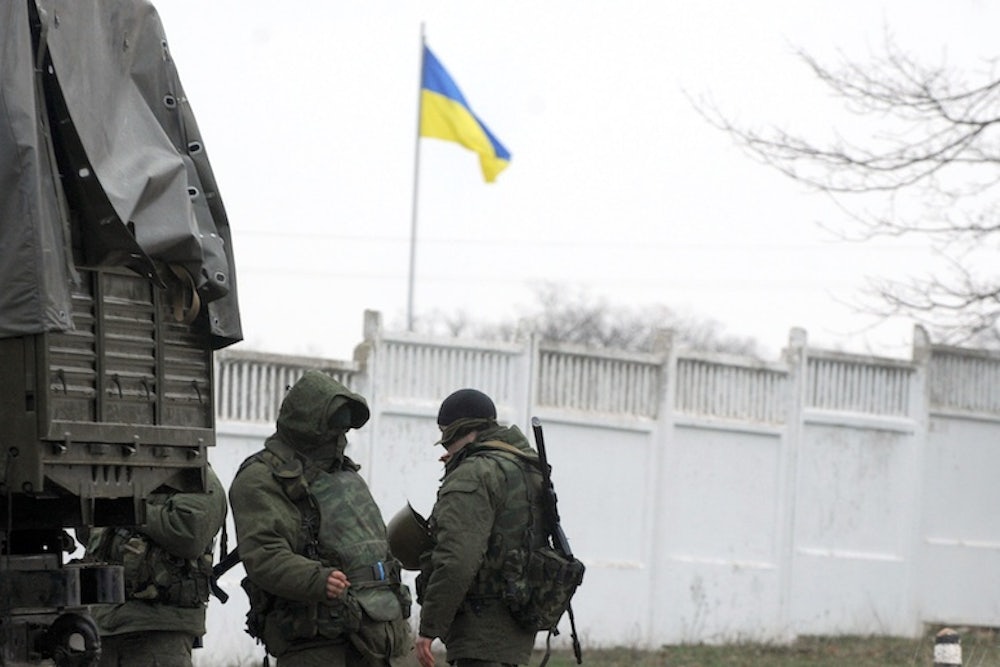In the cafés, in the shops, on the streets of Kiev everyone is asking the one question that matters in one particular way: Will there be war? No one can quite finish the question: Will there be war with Russia? That such a thing could even be: a war between Ukraine and Russia.
And yet we have accustomed ourselves to this simple fact the way that you reconcile yourself to the loss of someone who is dear to you—you cry, you suffer, you endure. Only at the cemetery does the inevitable sadness come to dwell in your heart.
That's how it is for us, now, with Russia. Russia has already passed away. Even those who have close relatives in Russia begin to see their own family members as alien, distant people. This applies, of course, only to those Russian relatives who support war and justify aggression.
Of course, this is painful, this is unpleasant, this is irritating. But for us there is no longer any Russia of any kind. There is only an occupier, treacherous and mindless. It matters not at all to us how the occupier calls himself, what insignia are missing from his uniform.
What matters for us is that today he provokes our troops in Crimea, he threatens to invade other regions of our country, he sends to our cities provocateurs who take down our flags from the flagpoles and raise instead the flags of aggression and revenge. For us it matters not at all what this enemy is called. It only matters that he not kill us. This is all that people ask one another on the streets: Will this enemy kill us, will this enemy bomb us, will this enemy send his tanks from occupied Crimea to the rest of Ukraine? Putin and the Russians who elected such a president no longer interest us. They are like a corpse in the cemetery.
It was a Jewish custom to read a memorial prayer for relatives who converted to other faiths. We read such a prayer for you today, because you have converted to the faith of hatred to those whom so recently you called brothers.
Now you can come to Crimea and take photographs of yourselves on the streets with the ancestors of the people you brought there decades ago, to undertake the difficult labor of removing the traces of that other crime of your homeland: the expulsion of the indigenous nations of the peninsula. But the seeming love of these local Russians, their faith in the handouts that soon you will not be able to afford, will not replace our former attachment to you. You have won Crimea and you have lost Ukraine. You have lost Ukraine forever. Farewell. Don't kill us.
You have lost us. We have gained in return a whole world of sympathetic people who support us in our fight for freedom—not only our freedom, but your freedom as well, because you need freedom too, and if you have realized this yet, you will soon enough. We have understood who was really our friend and our brother this whole time, and who simply pretended to be in the hope of sooner or later placing the double-eagled yoke over our neck.
From time to time we will miss you. From time to time we will miss those moments when you seemed to be the same sort of people as we are. From time to time we will remember that many of us speak the same language as you do. From time to time we will read your writers and now we will say—like the rest of the world does already—imagine that, their writers are such humanists, and they are unchained animals. But this will not often happen.
Forgive us. We have a lot of work to do. We will be busy building a new land, in place of the old one, destroyed with your help. We have to monitor our own government so that it does not become a refuge for crooks, the sort of people who until recently ruled us and still rule you. We have to find a way to build a strong army, which will protect us from possible aggressors. We now know that we are not surrounded only by friends, and that such an army will be necessary. In a word: much to do, no time for Russia.
When you awaken from the nightmare in which you live, we will be genuinely happy for you, and happy that we no longer have to be afraid. But we will not forget, not for a very long time, that our women now live in fear, and our young people are raised amidst hatred. You will have to work long and hard to win our trust and to show that you have become normal people. You will have to convince us that you no longer think that the only source of pride in this world is a kalashnikov. We will be happy if you are able to do all of this, since it is better to be free than to be a slave, and better to live in peace with neighbors than in fear and hatred.
But this is for later, much later.
For the time being: just do not shoot.
Vitaly Portnikov is a Ukrainian writer.
